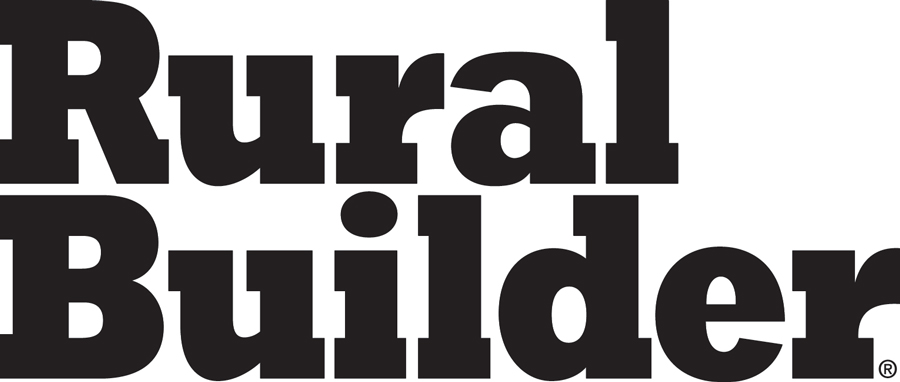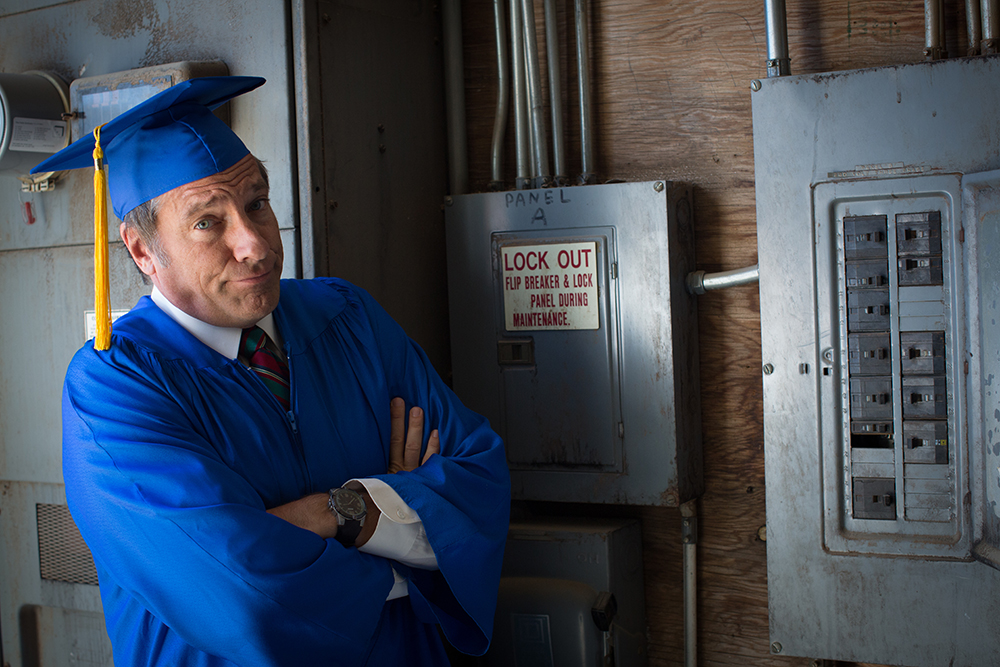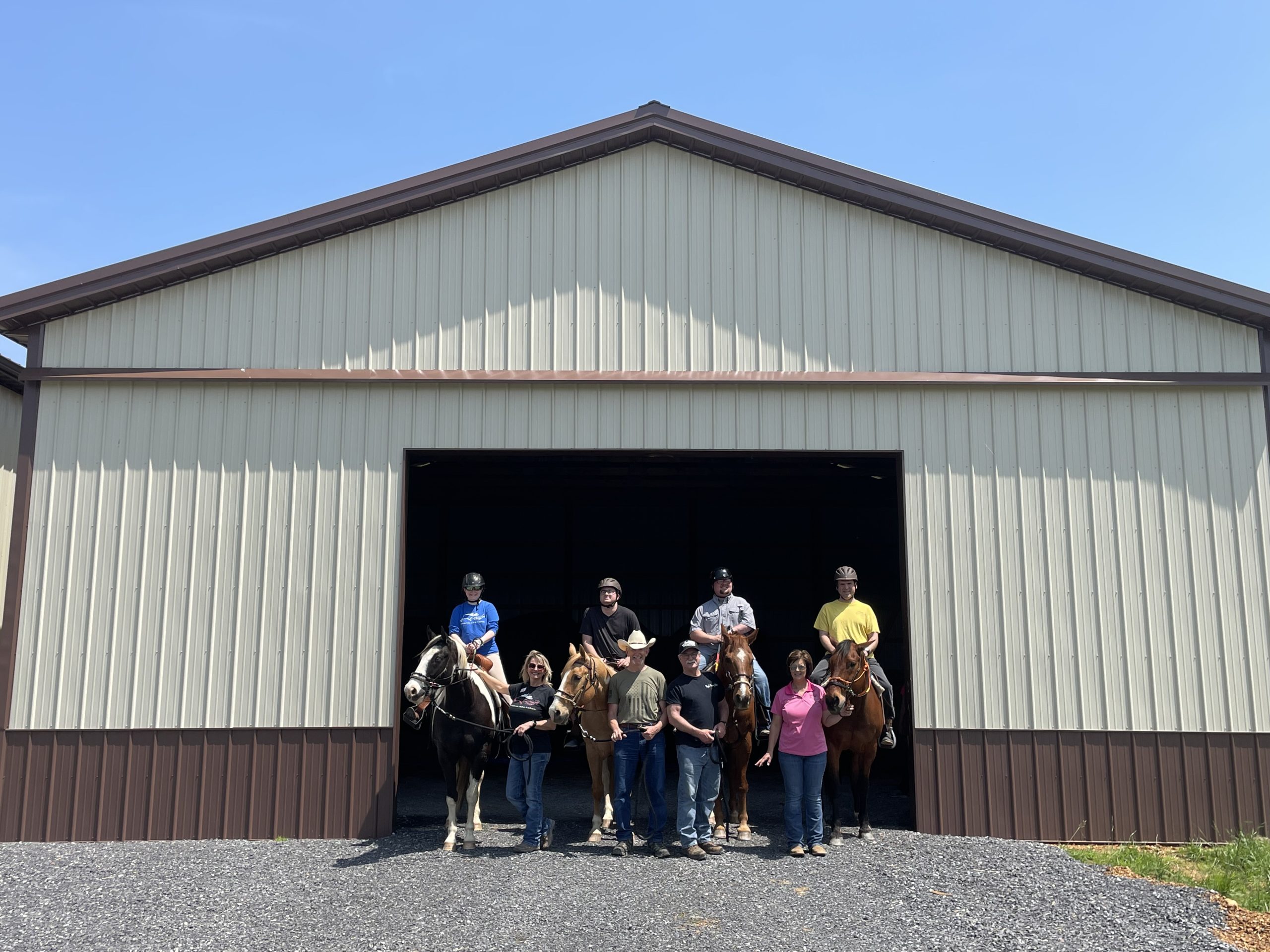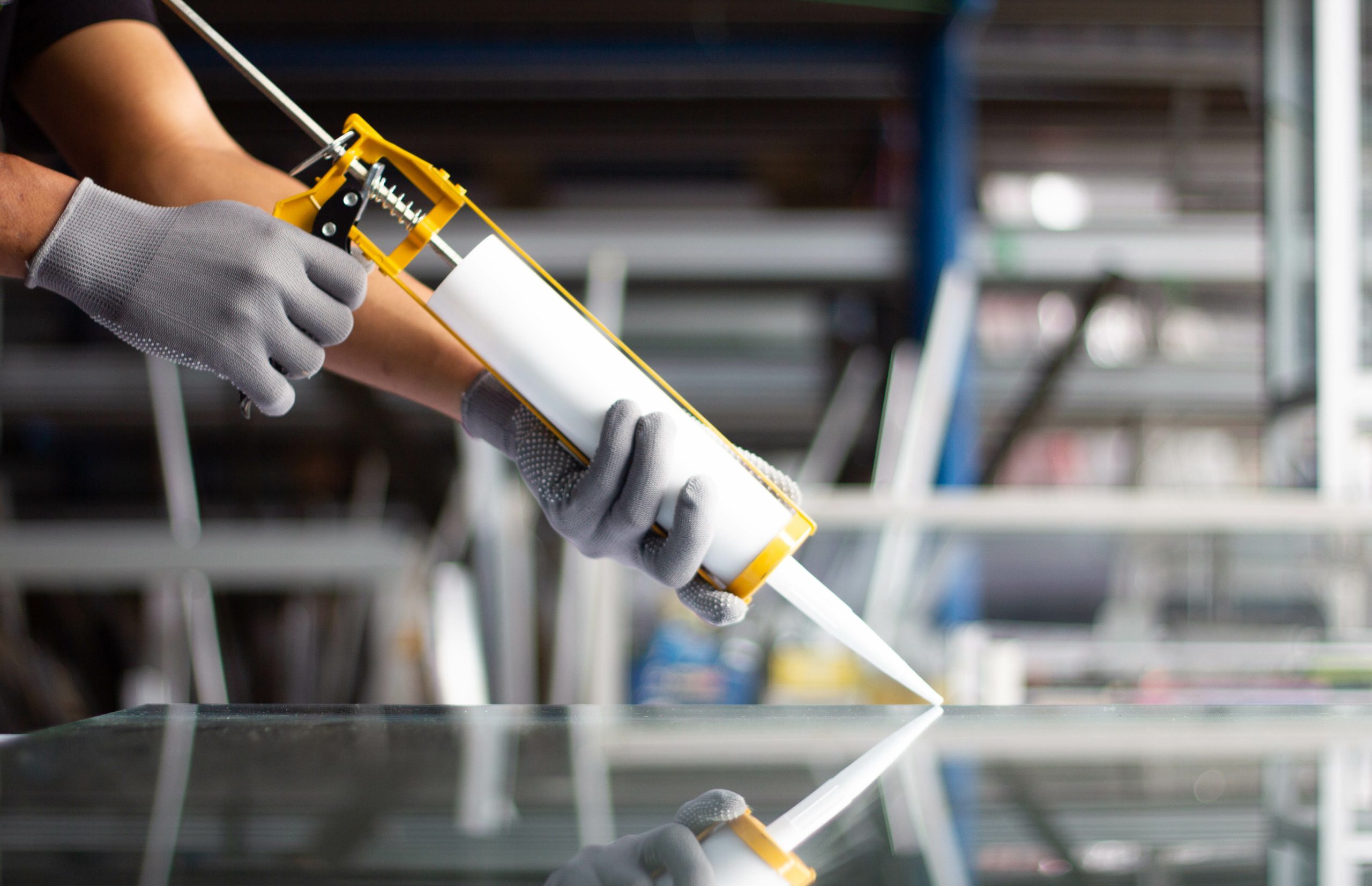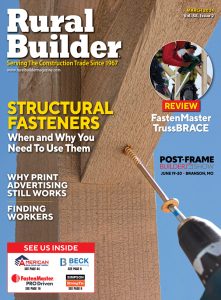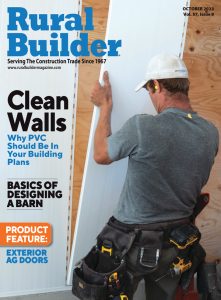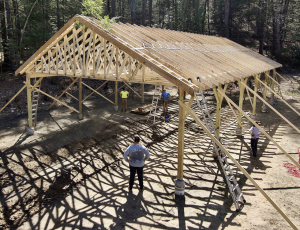From Dirty Jobs to the Work Ethic Crusade
By Jenn Milner
IF YOU KNOW THE NAME Mike Rowe, then you can probably picture the American producer and actor knee-deep in some unknown, and undoubtedly dirty substance. During his five-year tenure as the host of Dirty Jobs, Rowe played apprentice to dozens of blue-collar workers, where he developed a deep respect for the often forgotten and ridiculed “dirty” tradesman.
“The jobs he was working on were perceived as undesirable,” says Jade Estrada, VP of the mikeroweWORKS Foundation. “But the people he was working with were making good money; they were entrepreneurs. They were not necessarily following their passion, but they were bringing their passion with them in their work and succeeding.” These experiences led Rowe to launch the mikeroweWORKS Foundation in 2008 with the mission of improving the reputation of hard work and the trades.
The mikeroweWORKS Foundation looks to close the skills gap in this country by challenging the stereotypes and stigmas connected with the trades that discourage workers from pursuing a huge range of viable careers. Culturally and in our education, the past couple generations of American workers have been led to believe that a four-year degree is the only path to success: that blue-collar work is for those who couldn’t make it to college, that it was “runner-up” work.
The main goal of the foundation is to let people know how absolutely wrong that is. “Tradespeople are not who you think they are,” says Estrada. “They are hardworking people, entrepreneurs, and trailblazers who have mastered a skill that’s in demand anywhere in the world.”
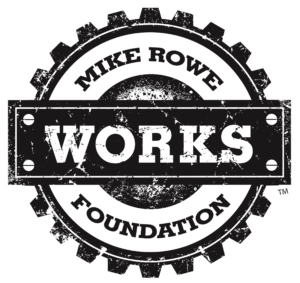
Work Ethic Scholarship Program
A scholarship program developed naturally out of this campaign for hard work and skilled labor. If Rowe was going to educate students on the value of the trades, he also wanted to help hardworking students on that path. Since 2008, the mikeroweWORKS Foundation has awarded over 1,000 scholarships worth nearly four and a half million dollars. “The majority of the people who apply are fresh out of high school,” says Estrada, “however, we have many applicants who are exploring the trades as a second career.”
As long as you meet the requirements, it doesn’t matter what stage in life you are living. Along with typical scholarship requirements like a transcript, some essay questions, and references, you need to enroll in an approved program at a two-year school. Approved trades include automotive and aviation technology, carpentry, construction, EMT, farming & agriculture, manufacturing, plumbing, and more. (A full list of guidelines and programs can be found at mikeroweworks.org/scholarship.)
More than anything else, applicants need to display their commitment to the four pillars of the S.W.E.A.T. Pledge: work ethic, personal responsibility, delayed gratification, and a positive attitude. In 2020, nearly one million dollars in scholarships were awarded to more than 200 students all over the United States. It is the highest dollar amount awarded in one year in the program’s history. “Mike is now the leading advocate of skilled trades in the U.S.,” says Estrada. “The number of individuals involved and the visibility of the program have grown substantially.”
You’ve Got to be Willing to S.W.E.A.T.
One of the core beliefs of the mikeroweWORKS Foundation is that working hard should be valued in our society. Out of that belief grew the S.W.E.A.T. Pledge, which stands for “Skills and Work Ethic Aren’t Taboo.” Rowe created this list of 12 belief statements to outline and exemplify the characteristics and world view he values in a worker. For example, here are a couple of the 12 statements:
“2. I believe that I am entitled to life, liberty, and the pursuit of happiness. Nothing more. I also understand that “happiness” and “the pursuit of happiness” are not the same thing.”
“7. I believe the best way to distinguish myself at work is to show up early, stay late, and cheerfully volunteer for every crappy task there is.”
“12. I believe that all people are created equal. I also believe that all people make choices. Some choose to be lazy. Some choose to sleep in. I choose to work my butt off.”
Rowe readily acknowledges that the S.W.E.A.T. Pledge isn’t for everyone, and may ruffle some feathers, but he strongly believes that the values displayed are what make a good worker. So much so, that every applicant for the scholarship program needs to sign a copy of the S.W.E.A.T. Pledge before they can be eligible.
An outcropping of the S.W.E.A.T. Pledge, after encouragement and support from partner companies, was the development of a work ethic curriculum built around the four pillars of the pledge: work ethic, personal responsibility, delayed gratification, and a positive attitude. “These are qualities any worker or student can benefit from embracing,” says Estrada. “They will be useful for job satisfaction and success long-term no matter what profession you choose.” A pilot program of 20 post-secondary schools took place in the fall of last year and the foundation is continuing to test the waters.
In the future, the mikeroweWORKS Foundation hopes to expand the work ethic curriculum to corporations, middle schools, and high schools. Helping kids understand all of the options that are open to them and helping working adults rediscover good work ethic are both future desires of the curriculum. Look for the curriculum’s progress in the years to come. Coming to a school near you! RB

